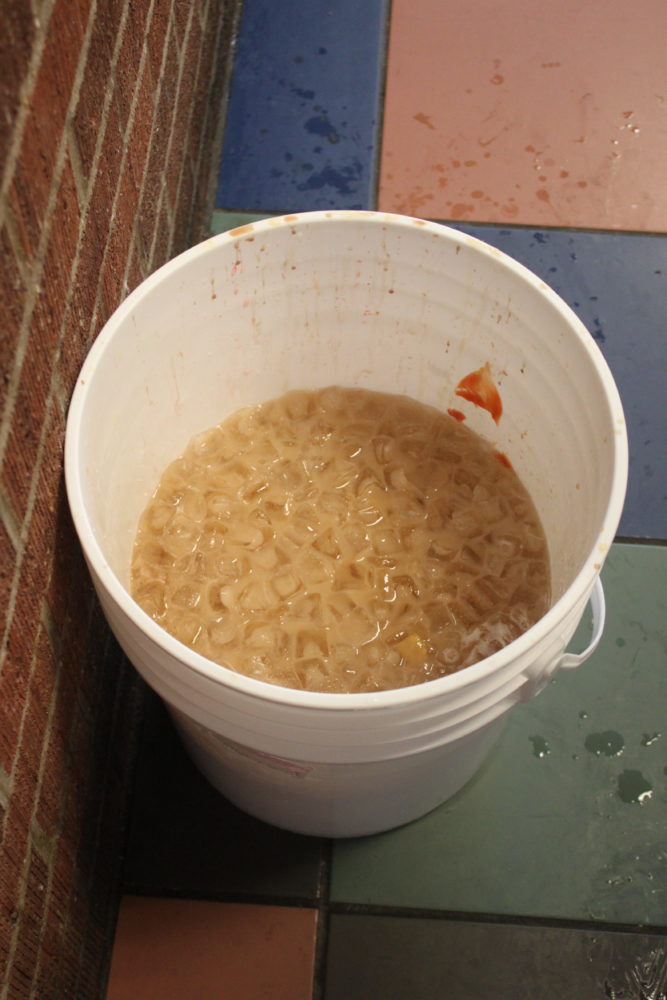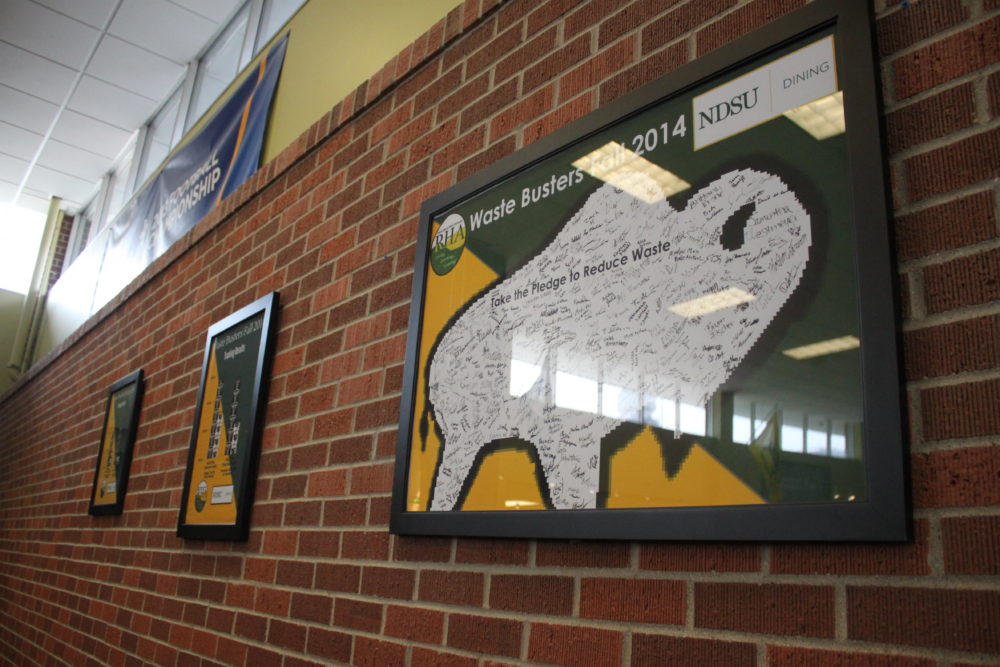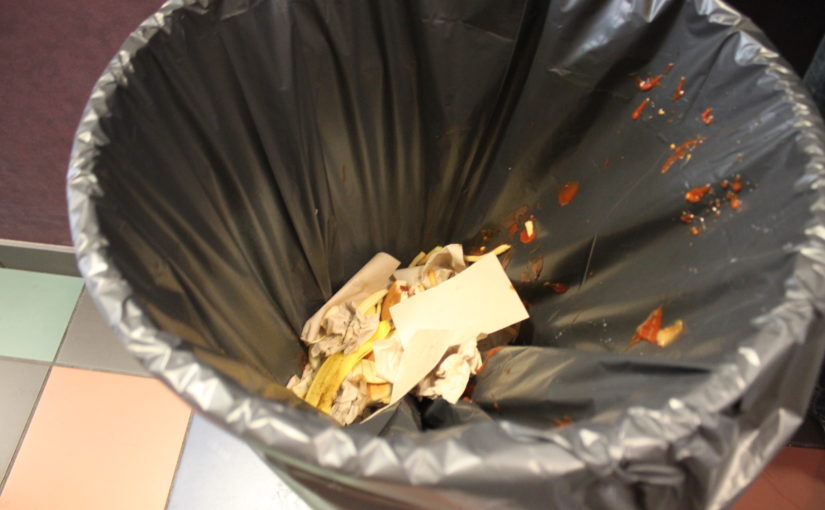North Dakota State has a responsibility to lead the state. We are a center of some of the greatest minds in the state of North Dakota. If changes are to happen in this state, we must have a part in it.
As a nation and as a state we have an issue. We need to find a better way to deal with our food waste.

Liquid waste from The Dining Center.
At NDSU, there is a program called Waste Busters that monitors the waste NDSU dining centers produce.
For two days, students and staff volunteer to shed light on the waste that is produced in our dining centers.
“I’ve seen whole burgers come back,” Nelson Isaacson, a senior in mechanical engineering, said. He, along with fellow students, volunteers to weigh out the food thrown away.
“It’s like some people just grab their food (from the line) and come right here and hand it to me,” Isaacson remarked. “It’s not that great.”
This waste piles up over time. From fall of 2016, there was a total of 695.7 lbs and 593.73 lbs for Oct. 4-5 and Nov. 15-16.
For the time that I was visiting it was about the same (April 11-12), we produced 623.44 lbs. Considering over that two-day stretch 3,735 students ate there, that means on average NDSU students produce about .17 lbs of food waste per visit.
If you went to school for 150 days and only ate on the weekdays three times a day, about 76.5 lbs per NDSU student of food waste is produced a year.
That is simply not sustainable and don’t expect Waste Busters to solve the problem.
“It’s a lot of work to staff,” Jen Kacere, Assistant Director for Leadership Development, said in an interview. She oversees Waste Busters and detailed the numbers behind the program.

Emily Glynn volunteered for Waste Busters.
I asked if this (Waste Busters) was eventually being planned as full time.
“Ultimately we track four days during each semester,” Kacere said. I guess the name made me think something else happened. Busters didn’t prepare me for the fate of the food.
“It’s thrown out.” Roxanne England, LRD Associate Director said.
Don’t mistake Waste Busters as a solution to our problem. This is not a sustainable program. Rather it is the first step of many that need to come.
Kacere stressed education.
“How do we educate students on eating what they take?” Kacere said.
Which is true. In some cases, students don’t think of food waste as a problem. It is a vital step to educate about food waste as an issue.
Where a rhetoric of stiff party lines and finger pointing gets us nowhere, education gets results. This is a problem and the numbers and facts don’t lie.
At the moment, dining is trying their hardest to combat the issues of food waste. From making sure that food is reused if not eaten, for instance using leftover chicken on the salad bar or putting leftovers on the line as a second option.
This still doesn’t stop the problem.

The Waste Busters pledge.
Don’t mistake it. Food waste is a serious problem for our university, our state, our country and our world.
Food unable to decompose naturally produces methane. A gas 20 times worse than carbon dioxide as a greenhouse gas. NDSU contributes to this problem, as does the rest of our state.
I talked to a person at the solid waste department of the City of Fargo. According to them, the dumpsters at all Fargo recycling centers can take food waste (no animal products), although this is only available in the warmer times of the year.
It is up to the university. When is NDSU going to make it a priority?
Without the culture of sustainability being a part of student’s everyday life, nothing can be changed.
Without the necessary facilities, NDSU will have to continue to waste or will have to make an investment into sustainability ourselves.
“There is a financial commitment,” Kacere said, unable to comment on the university’s ability to make that commitment of course. Lying the responsibly on educating the students further.
But why don’t we compost? Compost is an important part of agriculture. Providing important nutrients for the soil. We have composting classes, why not involve our dining center’s waste?
What about using food waste as animal feed? Or any number of solutions? Again, this requires a commitment that our society is going to need to demand.
Perhaps we don’t care though. Perhaps we don’t care about global warming. Perhaps we don’t care that the last decade was the hottest on record.
Perhaps we don’t care about facts. The thing about global warming and environmental issues is they do not care whether we agree with the numbers or not.
NDSU students, it is our time to give a damn and look to possible solutions. This is an issue we can either lead in or an issue we can continue to contribute to.
